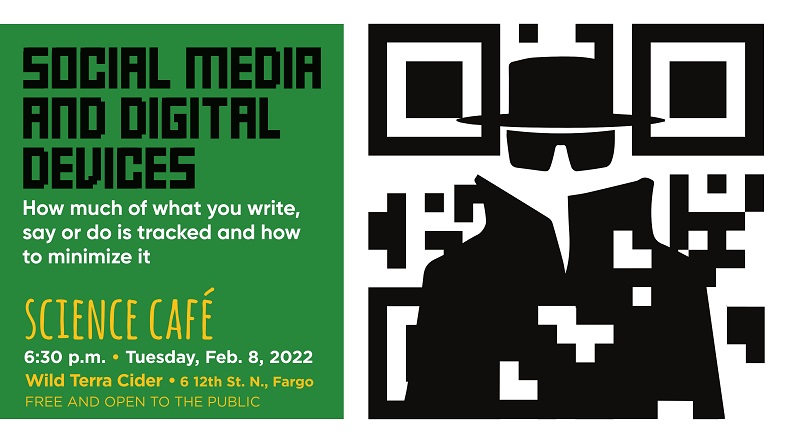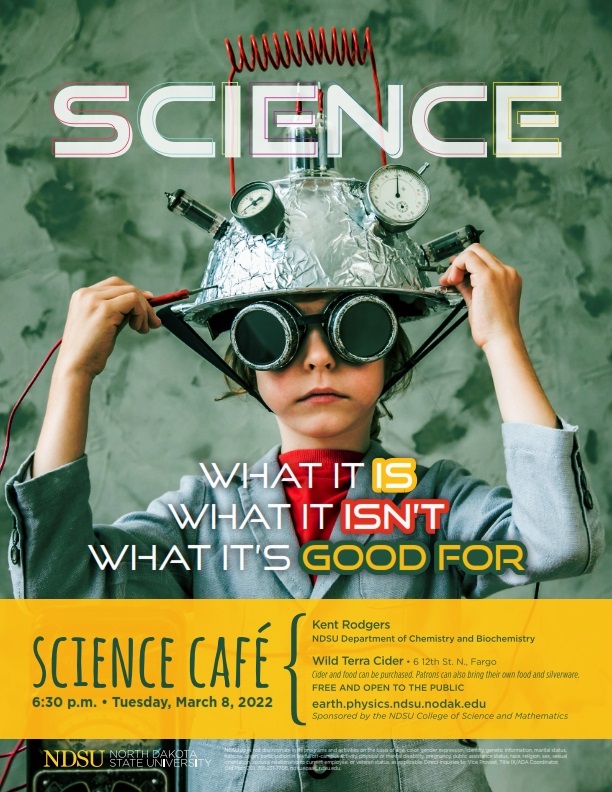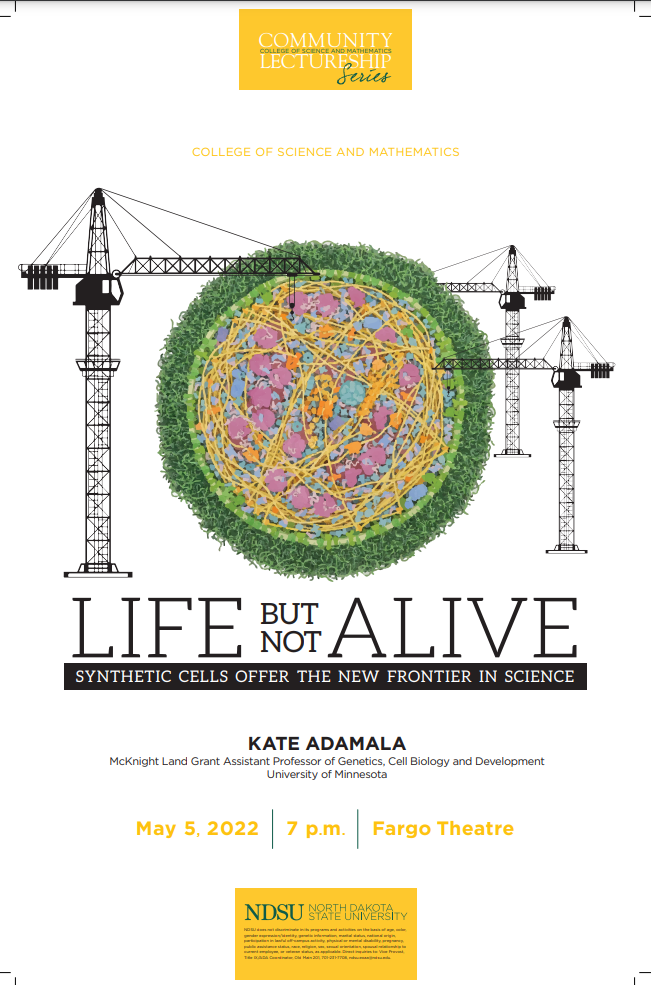
Social media and digital devices: How much of what you write, say or do is tracked and how to minimize it
Nem W. Schlecht
IT Infrastructure Engineering Manager, Border States Industries, Inc.
Abstract: We live in a wondrous age where we are connected to everybody we know and we can control our homes with our voice or mobile device. However, we are paying a price for this. Our lives and activities are being tracked and that data is being sold to target advertising directly to our specific behaviors. How can we continue to make use of these wondrous tools, yet not become the subject of this targeting? Although impossible to avoid, there are many steps and tools that I will explain and demonstrate to minimize your digital footprint without having to revert back to the digital stone age.

Science and Political Controversy
Kenton Rodgers
Professor, Department of Chemistry and Biochemistry, North Dakota State University
Abstract: As the global community navigates ongoing public health and environmental crises, the scientific community is navigating a decline of the esteem in which it and, in some cases, its practitioners are held by the general public. Public statements by elected officials, the press and members of the public on topics related to science and technology often reveal an incomplete or incorrect understanding of what science is. Specifically, there seems to be widespread misunderstanding of scientific inquiry, what its goals are, and how its outcomes can or cannot inform sound public policy. Coupled with, or at least related to this general misunderstanding of science is the hijacking of public opinion on science-related issues. In order to advance their own interests, groups often exploit misunderstanding of science and the associated struggle to distinguish evidence-based argument from misinformation. This is typically accomplished through misinformation campaigns that often succeed in aligning public opinion on science-related issues with special interests, even when they are at odds with the public interest. This presentation will discuss how science works in the context of history and current events. It will explore how awareness of scientific methods provides a foundation for distinguishing evidence from misinformation and for recognizing how to consider the outcomes of scientific inquiry as guideposts for public policy.

TBA
Sanku Malik
Professor, Pharmaceutical Sciences, School of Pharmacy, North Dakota State University
Abstract: The event is cancelled

LIFE BUT NOT ALIVE
Kate Adamala
McKnight Land Grant Assistant Professor of Genetics, Cell Biology and Development, University of Minnesota, MN
Abstract: Building live cells from scratch, from non-living components, will soon become a reality. Constructing synthetic cells, precisely manipulating molecules and designing all biological processes, will give us unprecedented control over living systems. And on the way to engineering organisms from simpler building blocks, we are learning more about how our life works. Synthetic cells find many uses in basic research, as well as biomedical and technology applications. Building cells allows us to address fundamental questions about the nature of life, investigating history of life on Earth and elsewhere in the Universe. We are developing new biocomputing solutions, moving towards building a living computer and electronics interfacing with natural tissues. We investigate complex natural processes on biochemical, cellular and population levels, and we are testing all basic assumptions made by biologists from the beginning of science. Synthetic cells can be used for personalized medicine: reconstructing patient's specific mutations in each synthetic cell sample and testing drugs for that very specific variant of the disease. More extreme medical applications are also possible: treating astronauts during long term space missions with drugs custom made in specifically designed synthetic cells, of growing nutrient-dense food in space. Synthetic cells offer the new frontier in science: with the ability to fully control every aspect of living cell, we can move beyond messy natural biology and change our understanding of life. Short CV: Kate Adamala is a biochemist building synthetic cells. Her research aims at understanding chemical principles of biology, using artificial cells to create new tools for bioengineering, drug development, and basic research. Her work spans questions from the origin and earliest evolution of life, using synthetic biology to colonize space, to the future of biotechnology and medicine. Kate is a co-founder of the synthetic cell therapeutics startup Synlife, and one of the leaders of the Build-a-Cell synthetic cell community.McKnight Land Grant Assistant Professor of Genetics, Cell Biology and Development, University of Minnesota, MN